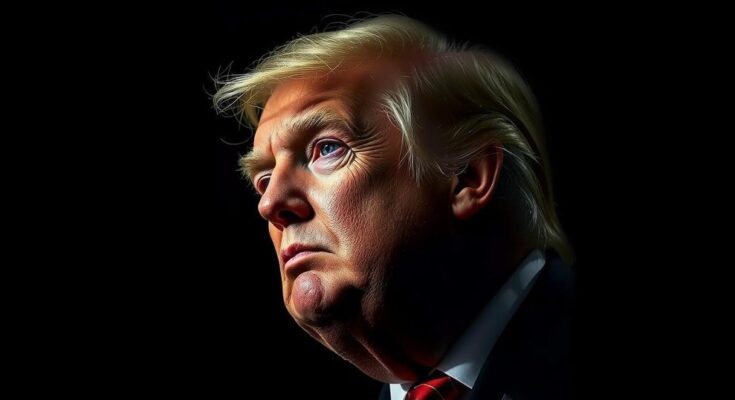The article examines the troubling implications of Donald Trump’s potential return to power, contrasting populism’s appeal to problem-solving without moral constraints against the ethical frameworks typical of liberal democracy. Balint Magyar’s insights into authoritarianism illuminate the dangers of such a shift, drawing unsettling parallels between Trump’s tactics and those of global populist autocrats. The potential fallout for civic institutions and democracy itself paints a chilling picture of the consequences of his re-election.
In the chaotic theater of American politics, the reemergence of Donald Trump whispers promises fraught with both allure and peril. Balint Magyar’s insightful analysis reveals the unsettling dichotomy between liberal democracy and populism, underscoring how the former champions moral constraints while the latter, led by figures like Trump, prioritizes problem-solving at the expense of ethical boundaries. This allure, a siren call for those weary of debate and societal expectations, invites individuals to abandon their moral obligations in exchange for a direct path to power and resolution. The narrative of Trump’s prior term mirrors strategies employed by global populist autocrats like Vladimir Putin and Viktor Orban, who capitalized on nostalgia for a simpler past while dismantling societal norms. Encouraged by the fervor of their followers, they offered permission to express grievances without restraint, laying the groundwork for a more profound erosion of accountability. Trump’s potential second term raises alarming parallels with Orban’s historic consolidation of power after his electoral defeat, positioning both leaders as self-proclaimed defenders of the people against perceived illegitimacy from opposing governance. The hostility Trump and his allies exhibit toward vital civic institutions forebodes a systematic dismantling of the checks and balances that uphold a democratic society. By undermining the integrity of the judiciary, media, and academic institutions, a framework for autocratic governance emerges, allowing authoritarian figures to emerge unchallenged. Drawing comparisons with Hungary’s aggressive silencing of dissenting academic voices, one can foresee a grim future for American universities, with pressures to conform to populist ideologies potentially leading to decay and abrupt closures. Thus, as the curtain rises on a potential second act for Trump, observers must pay heed to the growing chords of authoritarianism that echo ominously. In this intricate web of power dynamics, what unfurls is not just a struggle for political dominance, but a profound shift in the values that shape our collective conscience. With tension rising, the synapses of democratic engagement and civic responsibility face testing times ahead, and as we observe, we must prepare for the battle to preserve the very fabric of our society against the dark undercurrents of populism.
The article delves into the complexities of Donald Trump’s political return, juxtaposing his approach with that of autocratic leaders globally. It introduces Balint Magyar’s theories on the tension between liberal democracy and populism, where the former imposes moral constraints that can stifle change and the latter offers solutions at the expense of ethics. This background allows readers to grasp the underlying dynamics of Trump’s appeal and its potential consequences for governance in the U.S.
The analysis of Trump’s potential return brings to light a profoundly concerning trajectory for American democracy. As populist narratives gain traction, the danger lies in the erosion of moral accountability and the dismantling of critical civic institutions. This shift presents not only a challenge to the norms of governance but a crucial test of society’s commitment to democratic ideals. The ultimate question remains: will democratic values withstand this turbulent renaissance of power without principle?
Original Source: www.nytimes.com



